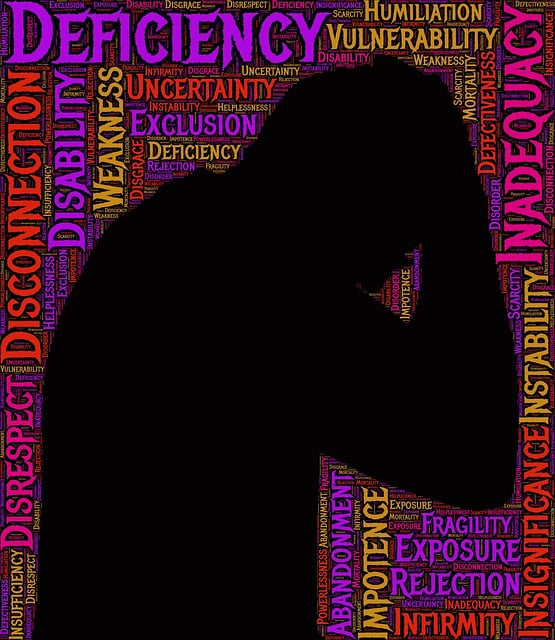La terapia centrada en el pensamiento positivo, adaptada a la cultura hispana, es una herramienta poderosa para mejorar la salud mental de los adolescentes hispanohablantes. Superar las barreras del idioma y culturales es crucial para acceder a servicios efectivos. Los ejercicios de pensamiento positivo, mediante actividades lúdicas y estrategias empáticas, fomentan mecanismos de afrontamiento saludables en adolescentes. La implementación estratégica en terapia o en casa, con el apoyo de encuestas culturales y formación en competencia cultural, asegura un impacto duradero en la resiliencia, el estado de ánimo y las relaciones interpersonales de los jóvenes.
Positive thinking exercises offer a promising approach to enhance mental well-being in adolescent teens, especially those from Spanish-speaking backgrounds. This article delves into the transformative power of positive thinking on teen mental health, addressing unique challenges faced by Spanish-speaking youth in therapy. We provide practical strategies for designing and implementing effective exercises tailored to adolescents’ needs. By exploring successful implementation methods and long-term benefits, this guide equips therapists and parents with tools to foster resilience and optimism in Spanish-speaking teens through targeted therapy.
- Understanding Positive Thinking and its Impact on Teen Mental Health
- The Challenges of Language Barrier in Therapy for Spanish-Speaking Teens
- Designing Effective Positive Thinking Exercises for Adolescents
- Implementing the Exercises: Strategies for Therapists and Parents
- Measuring Success and Long-Term Benefits for Spanish Speaking Teens
Understanding Positive Thinking and its Impact on Teen Mental Health

La práctica de un pensamiento positivo tiene un impacto significativo en la salud mental de los adolescentes. En un mundo lleno de desafíos y presiones, fomentar una perspectiva optimista puede ser una herramienta poderosa para navegar por las complejidades de la adolescencia. Los estudios sugieren que el entrenamiento en pensamientos positivos puede mejorar la resiliencia emocional, reduciendo así los síntomas asociados con la depresión y la ansiedad en esta etapa crucial del desarrollo.
Para las adolescentes hispanohablantes, la terapia centrada en el pensamiento positivo ofrece un espacio seguro para explorar y desafiar creencias negativas arraigadas. A través de talleres de gestión del estrés y sesiones guiadas, estas jóvenes pueden aprender a identificar patrones de pensamiento distorsionados y reemplazarlos con alternativas más adaptativas. Esta intervención no solo promueve una mejor salud mental, sino que también les proporciona herramientas duraderas para enfrentar los desafíos futuros, sentándose las bases para una vida más plena y satisfactoria.
The Challenges of Language Barrier in Therapy for Spanish-Speaking Teens

The challenges posed by a language barrier can significantly impact the effectiveness of therapy for adolescent teens who are Spanish-speaking. Accessing mental wellness services in their native language is crucial for these individuals to feel comfortable and engage meaningfully in therapeutic processes. Emotional intelligence, a key aspect of healthy development, may be overlooked if communication is hindered by language differences.
Depression prevention efforts are also compromised when cultural and linguistic barriers prevent teens from openly discussing their feelings and experiences. Therapists who lack proficiency in Spanish may struggle to understand the nuanced expressions and cultural contexts that shape emotional well-being. This can lead to misdiagnosis, inadequate treatment plans, and ultimately, a disconnection between the teen and their therapeutic support system.
Designing Effective Positive Thinking Exercises for Adolescents

Designing positive thinking exercises for adolescents, particularly Spanish-speaking teens, requires a nuanced approach that respects their cultural context and developmental stage. Effective therapy should be engaging and age-appropriate to foster genuine participation. Incorporating creative activities such as storytelling, art, and group discussions can make these exercises more relatable and fun. For instance, encouraging teens to create visual journals with images representing positive emotions or writing letters to their future selves can stimulate reflection and hopefulness.
When implementing emotional well-being promotion techniques, it’s crucial to blend them with empathy building strategies. Adolescents benefit from understanding that emotions are normal and shared experiences. Facilitating open conversations where teens can express their feelings without judgment creates a safe space for emotional exploration. Additionally, teaching mindfulness practices like deep breathing or guided meditation tailored to their needs can help adolescents develop coping mechanisms for stress and anxiety.
Implementing the Exercises: Strategies for Therapists and Parents

Implementing positive thinking exercises requires a strategic approach, especially when targeting Spanish-speaking adolescent teens in therapy settings or at home with parents. Therapists and parents alike can benefit from structured programs designed to improve mental wellness coaching. These programs should be tailored to suit different learning styles and cultural backgrounds to ensure maximum engagement and effectiveness.
For therapists, integrating these exercises into existing therapy sessions is key. Starting each session with a brief, culturally sensitive positive affirmation or gratitude practice can help set a calming tone. Incorporating visual aids, music, or group discussions centered around optimistic thinking can cater to diverse learning preferences. Similarly, parents can utilize daily routines and mealtimes as opportunities for mental wellness coaching by sharing positive experiences and encouraging open conversations about emotions. Social skills training, integrated with these exercises, can foster healthier interactions within the family unit.
Measuring Success and Long-Term Benefits for Spanish Speaking Teens

Medir el éxito y los beneficios a largo plazo de la implementación de ejercicios de pensamiento positivo entre adolescentes hispanohablantes es un aspecto crucial para evaluar la eficacia de estas prácticas. En este contexto, se pueden utilizar herramientas específicas adaptadas a la cultura y las necesidades de esta población. Por ejemplo, encuestas y entrevistas en español diseñadas para evaluar cambios en la percepción personal, el estado de ánimo y la resiliencia pueden proporcionar datos valiosos.
Además, la Mental Health Policy Analysis and Advocacy juega un papel fundamental en la promoción de estas iniciativas. A través de programas y campañas culturales, se puede aumentar la conciencia sobre la importancia del pensamiento positivo y mejorar el acceso a recursos de terapia para adolescente teens hispanohablantes. La formación en cultural competency training para profesionales de la salud es esencial para garantizar que los servicios sean sensibles a las diferencias culturales, facilitando así la conexión y la efectividad de las intervenciones, incluyendo las prácticas de pensamiento positivo. Los adolescentes pueden beneficiarse de estas estrategias para desarrollar habilidades de afrontamiento saludables y fortalecer su bienestar emocional, lo que se traduce en un mejor desempeño académico y relaciones interpersonales más positivas.
The implementation of positive thinking exercises offers a promising approach to enhancing the mental well-being of Spanish-speaking adolescent teens. By overcoming language barriers through tailored strategies, therapists and parents can effectively guide these young individuals towards cultivating optimistic perspectives. The benefits extend beyond improved mental health, potentially leading to better academic outcomes and stronger resilience in navigating life’s challenges. This holistic approach to therapy empowers Spanish-speaking teens to thrive, ensuring a brighter future built on a foundation of positive thinking.








